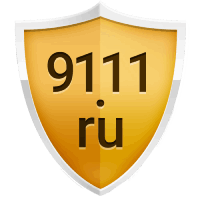Эволюция русской литературы: от классиков к современным авторам.
Краткое содержание :

Russian literature is a storehouse of creativity and cultural heritage. Spanning the ages, it reflects the nation's turbulent history, diverse emotions, and deep intellect. From classical literary giants such as Leo Tolstoy and Fyodor Dostoevsky to contemporary authors such as Olga Tokarchuk and Ludmila Ulitskaya, Russian literature continues to fascinate readers all over the world. In this comprehensive article, we will delve into the evolution of Russian literature by examining its iconic works, significant literary movements, and the impact it has had in shaping the world of literature.
The evolution of Russian literature: from classics to modern authors.
1. Old Russian literature: from medieval epics to folklore
In the early stages of Russian literature, narrative took the form of epic poems and folklore. Such works as "The Tale of Igor's Campaign" and "The Tale of Bygone Years" arose, preserving the historical and cultural narratives of ancient Rus'. These oral traditions laid the foundation for literary expression in Russia.
2. The golden age of Russian literature: classics of the 19th century
The 19th century marked the golden age of Russian literature, with a remarkable burst of creativity and introspection. Legendary authors such as Leo Tolstoy, Fyodor Dostoyevsky and Anton Chekhov have created timeless masterpieces exploring human nature, social issues and existential issues. Works such as War and Peace, Crime and Punishment and The Cherry Orchard continue to inspire readers and writers around the world.
3. The Symbolist Movement: An Exploration of the Subconscious
In the late 19th and early 20th centuries, the Symbolist movement emerged as a reaction to the rationality of the preceding literary era. Symbolist writers such as Alexander Blok and Andrei Bely delved into mystical and unconscious realms, using vivid imagery and allegory to convey complex emotions and ideas.
4. Russian revolution and socialist realism
The Russian Revolution of 1917 brought significant changes to the literary landscape. Socialist realism became the dominant literary style, promoting works that glorified the Soviet state and its achievements. Writers such as Maxim Gorky and Mikhail Sholokhov were prominent figures of the period.
5. Dissident literature: a challenge to the Soviet regime
Amid the rigid restrictions of the Soviet era, dissident literature emerged as a voice of resistance. Authors such as Alexander Solzhenitsyn and Boris Pasternak boldly criticized the regime, often being persecuted for their writings. Pasternak's Doctor Zhivago and Solzhenitsyn's The Gulag Archipelago are clear evidence of their courage.
6. Post-Soviet era: new horizons and different voices
With the collapse of the Soviet Union, Russian literature entered a new era of freedom and diversity. The authors explored a wide range of topics, embracing individualism and experimenting with literary styles. Notable contemporary writers such as Olga Tokarchuk and Lyudmila Ulitskaya have achieved international recognition by bridging the gap between Russian and world literature.
7. Magic realism in Russian literature.
Magic realism penetrated Russian literature, combining fantastic elements with everyday life. Writers like Mikhail Bulgakov, with his iconic The Master and Margarita, mesmerized readers with tales of magic and satire.
8. Science Fiction and Fantasy: Russian Imagination Unleashed
Russian authors have also excelled in science fiction and fantasy. From the Strugatsky brothers' Roadside Picnic to Sergei Lukyanenko's Night Watch series, these works have captured the imagination of readers both in Russia and abroad.
9. Contemporary feminist voices in Russian literature
In recent years, a new wave of feminist voices has emerged in Russian literature. Authors such as Maria Stepanova and Guzel Yakhina addressed issues of gender, identity, and social expectations, offering a fresh perspective on the modern world.
10. Modern Russian poetry: in the arms of the avant-garde
The world of modern Russian poetry is full of life and diversity. Poets like Dmitry Vodennikov and Vera Pavlova push the boundaries and experiment with innovative forms of expression.
Frequently Asked Questions (FAQ)
FAQ 1: Who is considered the greatest Russian writer of all time?
Answer: Leo Tolstoy is often called one of the greatest Russian writers of all time. His epic novel "War and Peace" is a literary masterpiece that transcends time and culture.
FAQ 2: How did Russian literature influence world literature?
Answer: The introspective and emotionally charged themes of Russian literature inspired authors all over the world, influencing the development of modern literature in different countries.
FAQ 3: Which contemporary Russian authors have received international recognition?
Answer: Olga Tokarczuk, a Polish writer of Russian origin, has received worldwide recognition for her writings. In 2018, she received the Nobel Prize in Literature.
FAQ 4: What is the significance of magical realism in Russian literature?
A: Magic realism adds charm and surrealism to everyday life, allowing authors to explore complex topics in a unique and engaging way.
FAQ 5: How has the portrayal of women in Russian literature changed over the years?
Answer: From the submissive characters of the past, modern Russian literature has evolved to depict strong, independent and complex female characters that reflect the changing role of women in society.
FAQ 6: Which contemporary Russian authors touch upon environmental issues in their works ?
Answer: Maria Stepanova, a well-known contemporary writer, explored the themes of the environment and climate change in her literary works.
Conclusion
The evolution of Russian literature is a fascinating journey through time reflecting the history, struggles and aspirations of the nation. From early epics to contemporary masterpieces, Russian authors have left an indelible mark on the literary world. Their work continues to resonate with readers, offering deep insights into the human condition and shaping our understanding of culture and society. The rich palette of Russian literature remains a source of inspiration and admiration for readers and writers alike, transcending borders and enriching the global literary landscape.



